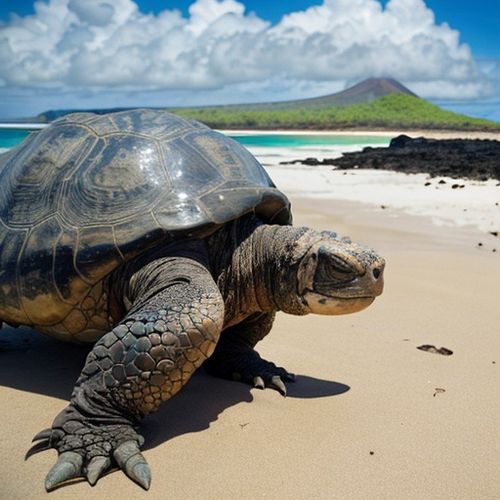The tropical paradise of Bali has long been a magnet for travelers seeking sun, surf, and spiritual rejuvenation. However, in recent years, the island’s idyllic image has been marred by a growing environmental crisis—plastic pollution. In response, the Balinese government implemented a strict ban on single-use plastics, a move that has left many tourists scrambling to adapt. For visitors, this shift requires not just awareness but a fundamental change in travel habits. The ban encompasses items like plastic bags, straws, and food packaging, pushing both locals and tourists toward sustainable alternatives.
Walking along Bali’s famed beaches, it’s impossible to ignore the visible impact of plastic waste. The ban, while commendable, has created a learning curve for travelers accustomed to convenience. Many tourists arrive unaware of the new regulations, only to find themselves unable to purchase bottled water or carry groceries in plastic bags. This adjustment period has been met with mixed reactions, but the underlying message is clear: Bali’s future depends on collective responsibility. Visitors must now rethink their daily routines, from shopping to dining, to align with the island’s greener vision.
One of the most immediate challenges for tourists is hydration. In a hot and humid climate, staying hydrated is essential, yet single-use plastic bottles are no longer an option. Savvy travelers have turned to reusable water bottles, refilling them at the growing number of water stations across the island. Hotels and restaurants have also stepped up, offering filtered water dispensers or glass bottles for guests. For those venturing into remote areas, portable water filters or purification tablets have become invaluable. This shift not only reduces plastic waste but also encourages a deeper connection with Bali’s environmental efforts.
Shopping habits must also evolve under the new regulations. Gone are the days of leaving stores with armfuls of plastic bags. Instead, tourists are encouraged to bring their own reusable totes or purchase locally made bags from markets. Many vendors now offer alternatives like woven palm-leaf containers or cloth wrappings, which double as souvenirs. While this may seem inconvenient at first, it fosters a more mindful approach to consumption. Visitors often find that carrying a reusable bag becomes second nature, a small but meaningful step toward sustainability.
Dining out in Bali has also undergone a transformation. Street food vendors, once notorious for their reliance on plastic packaging, are now embracing biodegradable materials. Bamboo containers, banana leaves, and edible wrappers are becoming commonplace. Tourists may initially be surprised to see their takeaway meals served on a leaf, but the novelty quickly gives way to appreciation. Restaurants, too, have phased out plastic straws, opting for bamboo or metal alternatives. For those with dietary restrictions or allergies, communicating needs without relying on pre-packaged foods requires extra planning, but the trade-off is a cleaner, healthier Bali.
Accommodations across the island have taken the ban seriously, integrating eco-friendly practices into their operations. Many hotels now provide guests with reusable toiletry containers instead of single-use mini bottles. Housekeeping staff are trained to minimize waste, and some establishments even reward guests for refusing daily towel changes. While these measures may differ from the luxury conveniences some travelers expect, they reflect a growing global trend toward sustainable tourism. Guests who embrace these changes often leave with a heightened awareness of their environmental footprint.
Transportation is another area where tourists can align with Bali’s green initiatives. Renting a scooter? Opt for a company that offsets carbon emissions. Taking a tour? Choose operators who prioritize eco-friendly practices. Even something as simple as refusing a plastic-wrapped snack on a long drive can make a difference. The island’s narrow roads and traffic congestion already pose challenges, but reducing plastic waste from transit-related activities is a tangible way to contribute.
For those who worry about the inconvenience, it’s worth remembering that Bali’s ban is part of a larger global movement. Cities and countries worldwide are adopting similar measures to combat plastic pollution. What may seem like a hurdle at first often becomes a rewarding part of the travel experience. Tourists who adapt quickly find themselves not just complying with local laws but actively participating in preserving the island’s beauty. The shift away from single-use plastics encourages creativity, mindfulness, and a deeper respect for the destinations we visit.
The success of Bali’s plastic ban ultimately hinges on cooperation between locals and visitors. While enforcement is strict in some areas, in others, it relies heavily on voluntary compliance. Tourists play a crucial role in this ecosystem—their choices can either undermine or reinforce the island’s sustainability goals. By embracing reusable products, supporting eco-conscious businesses, and spreading awareness, travelers become partners in Bali’s environmental mission. The island’s famed hospitality now extends beyond warm smiles; it includes a shared commitment to protecting its natural wonders.
As the sun sets over Bali’s beaches, the absence of plastic litter is a testament to what collective action can achieve. For tourists, adapting to the ban may require extra effort, but the payoff is immense. The island’s vibrant culture, breathtaking landscapes, and spiritual energy remain as captivating as ever—now with the added promise of a cleaner future. Travelers who heed the call for sustainability don’t just take home memories; they leave behind a legacy of respect and preservation. In Bali, the path to paradise is now paved with conscious choices.

By Megan Clark/Apr 11, 2025

By John Smith/Apr 11, 2025

By James Moore/Apr 11, 2025

By Victoria Gonzalez/Apr 11, 2025

By John Smith/Apr 11, 2025

By Rebecca Stewart/Apr 11, 2025

By Megan Clark/Apr 11, 2025

By John Smith/Apr 11, 2025

By Ryan Martin/Apr 11, 2025

By Samuel Cooper/Apr 11, 2025

By Emily Johnson/Apr 11, 2025

By James Moore/Apr 11, 2025

By David Anderson/Apr 11, 2025

By Ryan Martin/Apr 11, 2025

By William Miller/Apr 11, 2025

By George Bailey/Apr 11, 2025

By Daniel Scott/Apr 11, 2025

By Sophia Lewis/Apr 11, 2025

By Megan Clark/Apr 11, 2025

By David Anderson/Apr 11, 2025